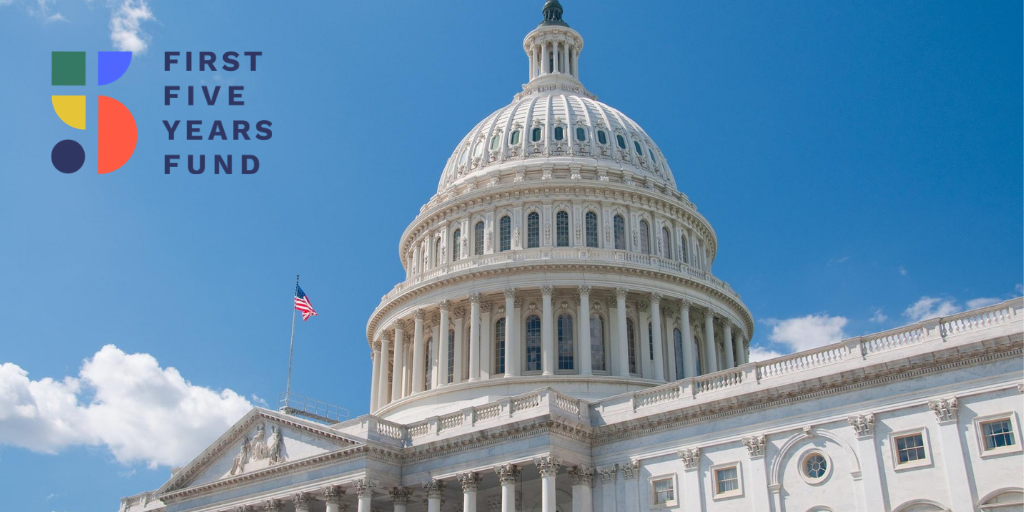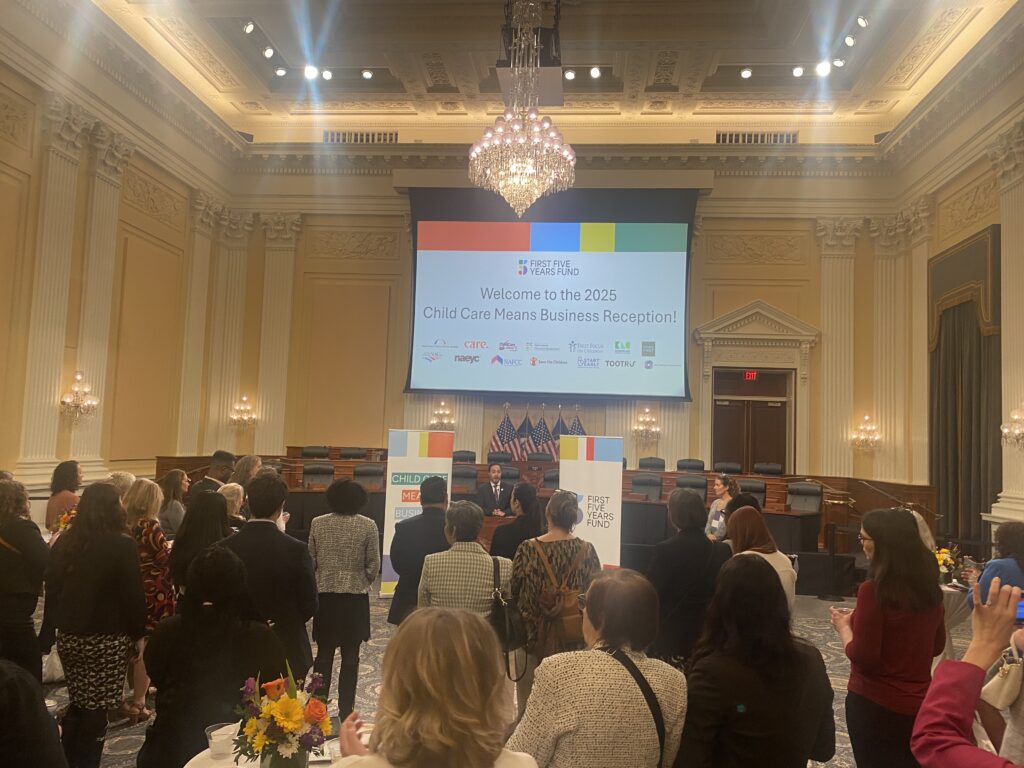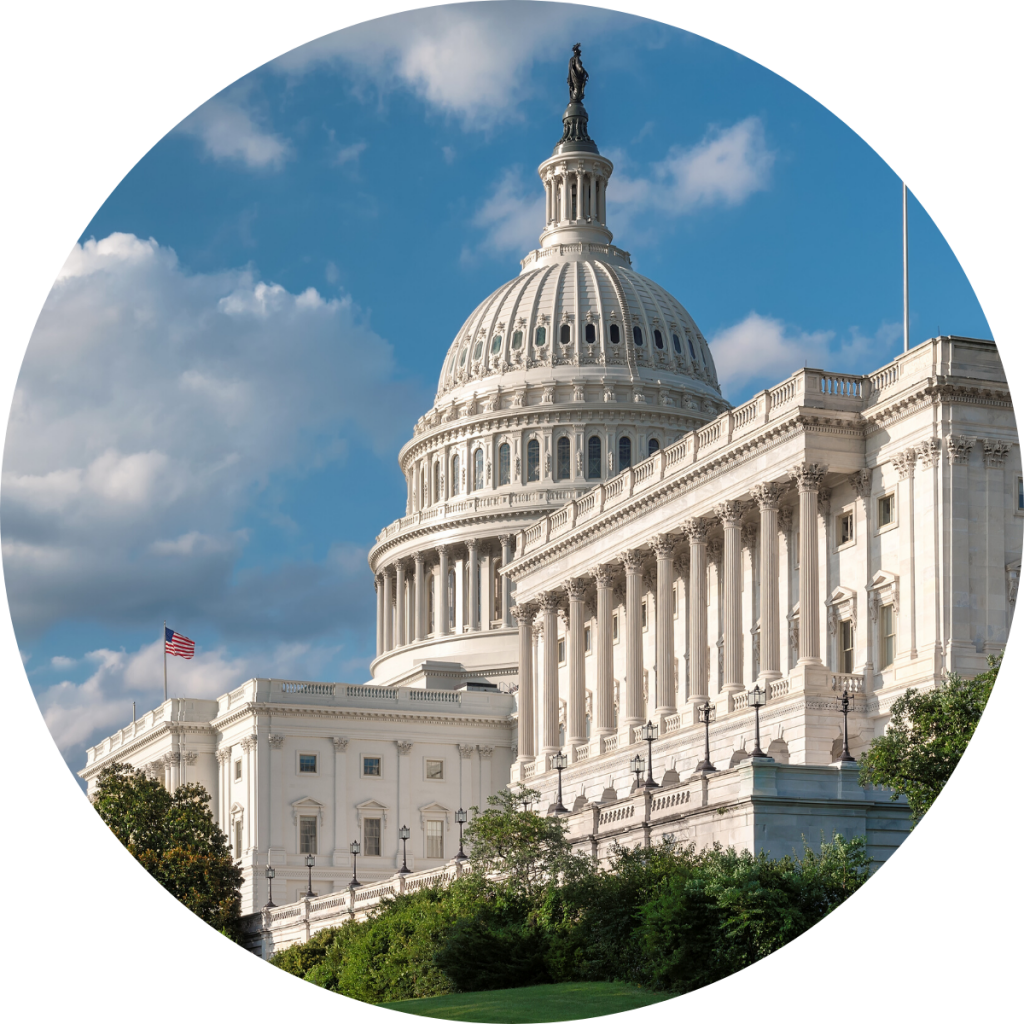Senate Banking Committee Hearing Highlights the Vital Role of Child Care in Our Post-Pandemic Economy

This week, the Senate Banking Committee held what Chairwoman Elizabeth Warren (D-MA) noted was likely the first hearing on child care in the history of the Banking Committee. The Economic Policy Subcommittee hearing, entitled “The Role of Child Care in an Equitable Post-Pandemic Economy,” featured a child care provider and economic experts to discuss how child care supports parents’ ability to go to work, the long-term benefits of high-quality care for children and families, and issues in the child care market that make care unaffordable for too many families, while much of the workforce earns poverty-level wages. Witnesses included:
- Ms. Fatima Goss Graves, CEO And President, National Women’s Law Center
- Dr. Betsey Stevenson, Professor Of Public Policy And Economics, Gerald R. Ford School of Public Policy, University of Michigan
- Ms. Bernadette Ngoh, Founder, Trusted Care Family Child Care
- Ms. Abby M. McCloskey, Founder And Principal, McCloskey Policy LLC
- Ms. Rachel Greszler, Research Fellow In Economics, Budget, And Entitlements, The Heritage Foundation
In her opening remarks, Chairwoman Warren thanked Ranking Member John Kennedy (R-LA) for working with her and her staff to make the hearing successful and elaborated on the critical role of child care in our economic recovery and in shaping what our economy will look like in the future. Citing statistics about parents and, in particular, mothers who left the workforce or reduced their hours due to lack of child care during the pandemic, she emphasized that parents need safe, reliable, and affordable child care to return to work. Without it, many will struggle to interview for jobs, let alone to hold down a job, or advance their careers. “A strong economic recovery depends on solving this problem.”
Chairwoman Warren also referred to the growing body of evidence showing that high quality early learning supports important brain development, prepares children for school, and leads to higher earnings and better outcomes throughout a child’s life. Given the demonstrated return on investment, these programs pay for themselves by the time children become adults: “This isn’t just a nice thing to do. It’s a smart investment that will yield returns for our country’s future.” She concluded with a call for significant investments in child care, noting that the pandemic highlighted the importance of early learning and care, as well as the challenges that have faced working families and child care providers for decades. “We have an historic opportunity right now to make sure that every family that needs it can find and afford child care and that every child care provider earns a living wage with good benefits.”
During questions for the witnesses, senators discussed at length how child care supports the economy, both in terms of enabling workforce participation and the long-term impact on children, and about underlying flaws in the child care system. Senator Smith (D-MN) referenced conversations with her constituents that demonstrated the business model for child care and early learning isn’t working for families, for businesses, or for providers, and that the lack of child care providers, particularly in rural areas, makes it difficult for mothers and fathers who need to work to access care at any price.
Senator Smith also asked Ms. Ngoh about the obstacles she faced in starting her business and how Congress can help providers to overcome those barriers as it seeks to expand the supply of child care nationwide. Ms. Ngoh mentioned lack of access to training; expenses related to equipment, toys, and other supplies; and help to ensure the physical space was safe and to meet licensing requirements. Ms. Ngoh said that funding would help with each of these issues, and that the programs and funding Congress has proposed would be a great improvement. In clarifying her response later on in the hearing, Ms. Ngoh emphasized that she didn’t support the removal of regulations to make startup or operations easier. She explained that the regulations are very important for establishing trust between parents and providers, as well as for the health and safety of the children. She reiterated that what was needed was support to help implement them.
Senator Warnock (D-GA) spoke about the high price of care, explaining that in Georgia, where he lives and is raising two young children, families spend 60% of their income on child care for two children. He asked Dr. Stevenson how subsidizing the cost of high-quality care would benefit the broader economy, even for people without children. Dr. Stevenson responded by talking about research showing that parent choice is driven by what they can afford. Provider quality is in turn influenced by what parents can afford to pay, and higher-income families tend to spend more on higher-quality care. This imbalance leads to inequalities in adulthood, but subsidizing high-quality early childhood education would help individuals reach their full potential, leading to a stronger, more competitive economy.
Building on that response, Senator Reed (D-RI) asked how to address the failure in the child care market that makes high-quality care unaffordable for families, while the workforce is significantly underpaid. Dr. Stevenson noted that in the K-12 system, we’ve decided that investment is worthwhile so that all children receive a free education, regardless of what their families can afford to pay. Noting that brain development in the early years makes education during that period even more important, she explained that if we invest in young children, they’ll pay it back in the taxes they pay on the higher wages that result.
Senators also discussed the role of wages in recruiting and retaining a highly-skilled workforce; the impact of women’s workforce participation on the economy as a whole; and how investments in family-friendly policies in other countries, including for child care and paid leave, has benefited their economies.
Watch the hearing here.
Subscribe to FFYF First Look
Every morning, FFYF reports on the latest child care & early learning news from across the country. Subscribe and take 5 minutes to know what's happening in early childhood education.



